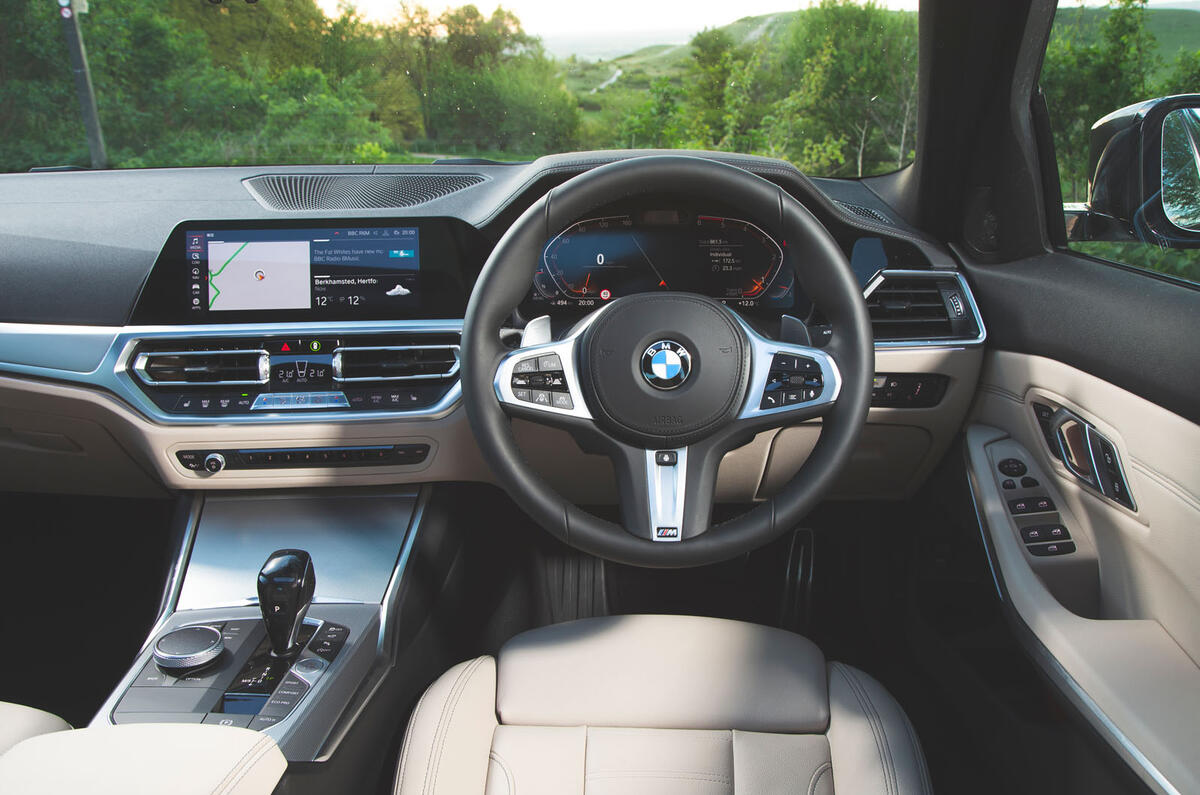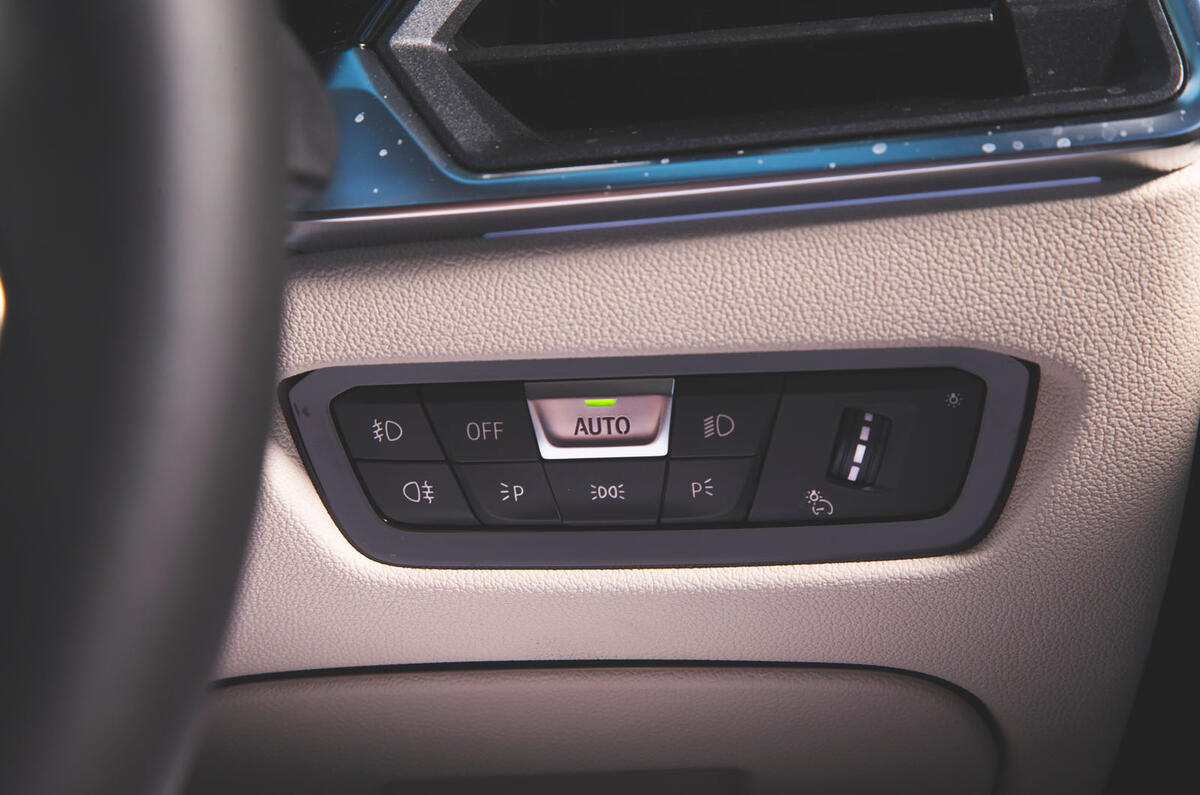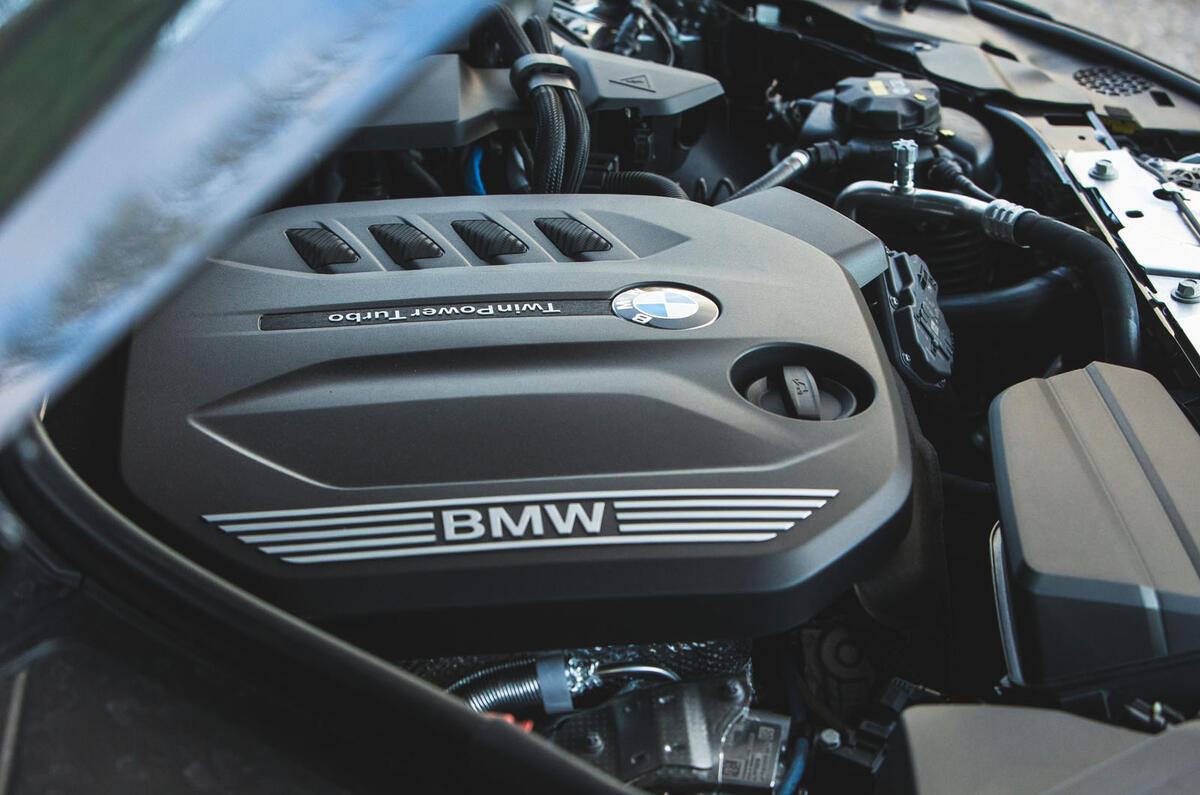More measured and assured than an Alfa Romeo Giulia; flatter-, lighter- and tauter-feeling than a Jaguar XE; and a lot more naturally athletic, poised and immediate to drive than any other compact executive saloon you might compare it with. So begins the edited highlights on exactly how the 320d feels to drive versus the competition, and how it goes down a typical UK road.
The car has fairly pacey steering, particularly in M Sport trim (where a variable-ratio rack is fitted as standard), but there’s usefully meaty weight to the rim that gathers with the increasing steering ratio, and a gradual increase in steering pace off-centre rather than a sudden one. All that allows you to quickly develop an intuitive sense of control over the front axle, and to begin enjoying what you’re doing at the wheel of this car almost instantly.
Motorway stability is excellent, handling precision is uncommonly good and lateral grip levels are generally high – but not so high that they can’t be probed or even overreached at the rear axle with the car’s cleverly tuned electronic stability controls disengaged. Thus, the rear-driven handling charisma we would expect of a BMW 3 Series shows up for inspection. Being plainly firmer-sprung and more laterally stiff than any other car of its kind, the car turns in very crisply indeed and retains first-order chassis balance and steering authority even under plenty of lateral load. The chassis rotates really keenly underneath you, then, while the engine produces just enough performance to begin to over-rotate the driven axle in the lower gears and brings the car’s handling, vividly but benignly, to life.




















































